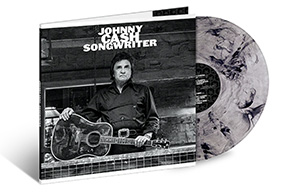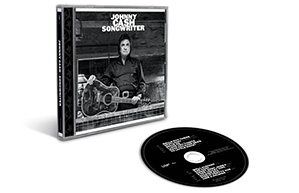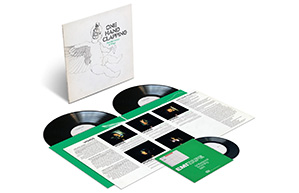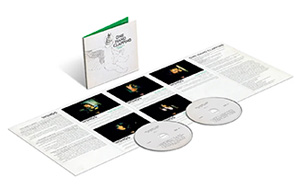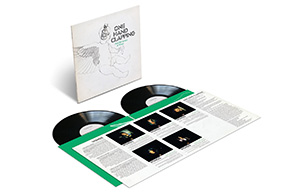‘Catcher In The Rye’: Guns N’ Roses’ Take On The Classic Novel
Axl Rose pays tribute to John Lennon on a lyrically intriguing ‘Chinese Democracy’ standout.
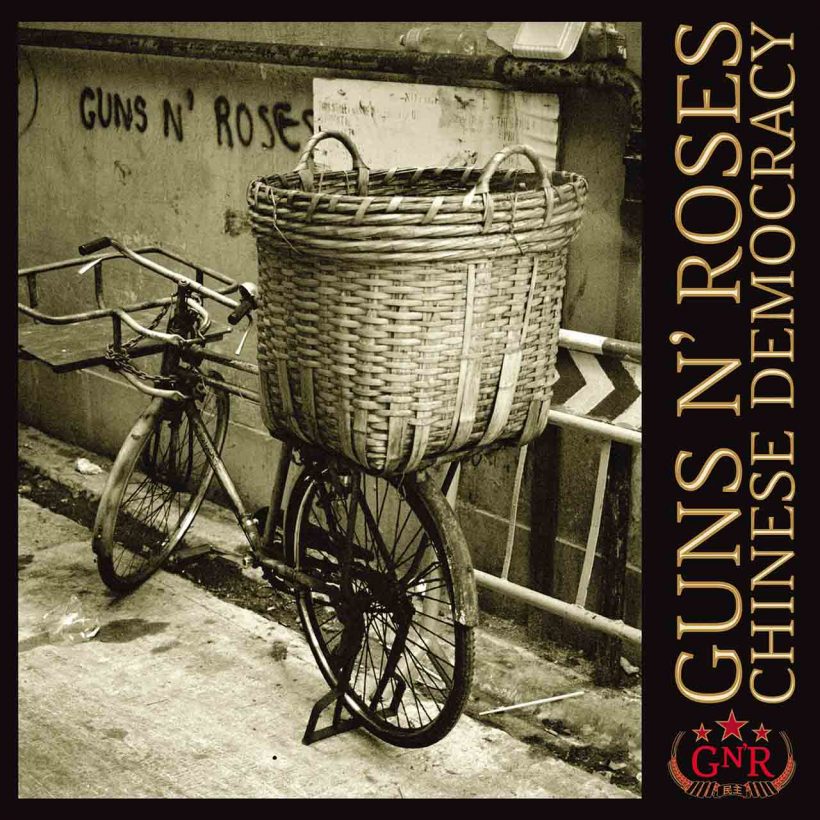
When Guns N’ Roses frontman Axl Rose wrote “Catcher In The Rye” – released on the band’s long-awaited 2008 comeback album Chinese Democracy – he joined a long list of musicians inspired by JD Salinger’s 1951 novel. Acts as disparate as Beastie Boys (“Shadrach”), Billy Joel (“We Didn’t Start The Fire”), Green Day (“Who Wrote Holden Caulfield?”), and The Jonas Brothers (“Six Minutes”) have referenced the novel and its writer, emphasizing their impact and continued significance. However, in his criticism of Salinger and protagonist Holden Caulfield, Rose sets himself apart from the rest.
Listen to “Catcher in the Rye” on Chinese Democracy now.
JD Salinger’s Novel
The Catcher in The Rye is written from the perspective of a damaged and sensitive schoolboy, Holden Caulfield. The reader is given access to Caulfield’s inner thoughts over the course of a week in New York at Christmas, shortly after his expulsion from a Pennsylvania prep school. Caulfield teeters on the precipice of adult life, veering between overwhelming bouts of nostalgia and despair while struggling to identify with the people he encounters. Along the way, we realize his erratic thoughts and behavior have roots in post-traumatic stress disorder, depression, and anxiety. These are all conditions that Salinger, scarred by the Second World War, passed on to Caulfield.
Salinger had written something that felt entirely new. No author had ever connected with misunderstood adolescents in quite the same way, and reading The Catcher In The Rye became a rite of passage for troubled teenagers everywhere. In the early 50s, the idea of the teenager was still a novelty – the sarcastic and angst-ridden Caulfield not only spoke to this emerging generation, but helped define it. The Catcher In The Rye spent 30 weeks on the New York Times bestsellers list and is estimated to have sold over 65 million copies worldwide since.
Meanwhile, the real-life story of The Catcher Of The Rye’s author only increased the novel’s allure. After its publication, Salinger retreated from view while publishing short stories, primarily concerned with the Glass family and increasingly dealing with spirituality. The New Yorker published his final story, “Hapworth 16, 1924,” in 1965, after which Salinger completely withdrew from public life. The writer’s silence only heightened interest in him and his work, as rumors about his personal relationships or whether he was hoarding decades’ worth of writing fueled his notoriety.
John Lennon’s Death
The Catcher in the Rye became a magnet for the misunderstood, and its reputation was changed forever by one obsessive fan. On December 8, 1980, former Beatle John Lennon was fatally shot outside his apartment at the Dakota building in New York City by a 25-year-old night security guard, Mark David Chapman. After shooting Lennon five times in the back, Chapman stood under a nearby lamp and began reading his copy of The Catcher In The Rye. When the building’s doorman demanded of him, “Do you know what you’ve done?” Chapman calmly answered, “Yes, I just shot John Lennon.”
Letters between Chapman and Stephen Spiro, the police officer who arrested him, detail Chapman’s fascination with Salinger’s novel. In January 1983 Chapman wrote, “Have you read The Catcher In The Rye yet? I would like you to read it and tell me what you think of it. As you remember, in the copy that was taken from me I had written ‘This is my statement.’ ” In another letter, Chapman urged Spiro to decide whether Lennon was a “phony” or not – a clear reference to Holden Caulfield, who spends much of the novel identifying “phonies.”
Chapman wasn’t the last disturbed individual to identify with The Catcher In The Rye. After John Hinckley Jr. attempted to assassinate then-president Ronald Reagan in 1981, the novel was found in his hotel room, and when Robert John Bardo murdered the model and actress Rebecca Shaeffer in 1989, he was carrying the book.
Axl Rose’s Response
To many, Caulfield was a new type of hero — an angst-ridden, hyper-sensitive, and damaged soul with whom many future rock stars would find kinship. Typically, though, Guns N Roses’ “Catcher In The Rye” takes a markedly different approach.
The jumping-off point for Rose wasn’t Caulfield’s worldview, but the damage caused by the novel — brought home to the singer when he happened to catch a documentary on Lennon’s death. On December 12, 2008, Rose revealed the song’s inspiration while participating in a Q&A session on the Guns N’ Roses fansite, ChineseDemocracy.com. “For me, the song is inspired by what’s referred to sometimes as Holden Caulfield syndrome,” he wrote. “I feel there’s a possibility that how the writing is structured with the thinking of the main character could somehow reprogram, for lack of a better word, some who may be a bit more vulnerable, with a skewed way of thinking and tried to allow myself to go what may be there or somewhat close during the verses. I’d think for most those lines are enjoyed as just venting, blowing off steam, humor or some type of entertainment where it may be how others seriously live in their minds.”
Rose’s reaction was telling. As a highly scrutinized rock star, he is acutely aware that once a piece of art becomes public, it is no longer controlled by its creator. The person reading a novel or listening to a song might interpret something differently from what the writer intended. They may be unable to take a fictional work at face value or notice any nuance or irony in the writing.
In the verses of “Catcher In The Rye,” Rose initially seems to sing from the perspective of somebody who has taken Holden Caulfield to heart and is kicking out at the world. Just like the book, the listener is put in the shoes of a person feeling misunderstood and alienated. And yet, there is an ambiguity to Rose’s lyrics and performance that suggests he is flitting between his own perspective and that of the narrator, as if he is intentionally creating gray areas of meaning. Just as Salinger’s PTSD is echoed in Caulfield, Rose – who suffered well-documented sexual abuse at the hands of his father and step-father as a young child – intuitively understands the perspective of the damaged narrator in his song and the lasting effects of trauma.
The lyrical perspective shifts in the outro, where Rose addresses the tragedy of Lennon’s death and criticizes Salinger for his part in it (“You were the instrument, you were the one/How a body, took a body, you gave that boy a gun”). Musically too, Lennon is evoked as the backing finds Guns N’ Roses at its most Beatles-esque. Rose elaborated during the webchat, “I feel our song pays the emotional tribute to John Lennon in the end that I’d wanted to write since the night he was killed… The outro is a tribute to Lennon and an indictment of the author for writing what I feel is utter garbage and I agree wholeheartedly that it should be discontinued as required reading in schools. That’s my take, I could be completely wrong, I do realize that the song and title could have the next poor soul reading the book and feeling inspired to make an unfortunate statement. So there’s the catch I guess.”
It’s a damning verdict from Rose, but perhaps it should be taken with a grain of salt – clearly Salinger’s portrayal of Caulfield touched a nerve with the singer, but his main problem with the book appears to be the impact it has had on a handful of individuals. Though he was far from the first musician to be inspired by The Catcher In The Rye, Rose’s multifaceted lyrical examination of the book and its effect on society remains perhaps the most intriguing. In its own way, Guns N’ Roses’ “The Catcher in the Rye” deals with the loss of innocence and the aftershocks of traumatic events – just like Salinger’s landmark book.
Listen to “Catcher in the Rye” on Chinese Democracy now.
Discover how words on the page become words in song, and vice versa, through uDiscover’s Music and Literature series. Much like literature, music is a medium for storytelling and world-building, and songwriters often look to poetry, drama, and prose to inspire their work. Similarly, music has gone on to shape new literary styles and even entire movements. Spanning genres and time periods, the series celebrates the relationship between these two artistic forms and digs into little-known facts about some of the most literary artists and songs.


